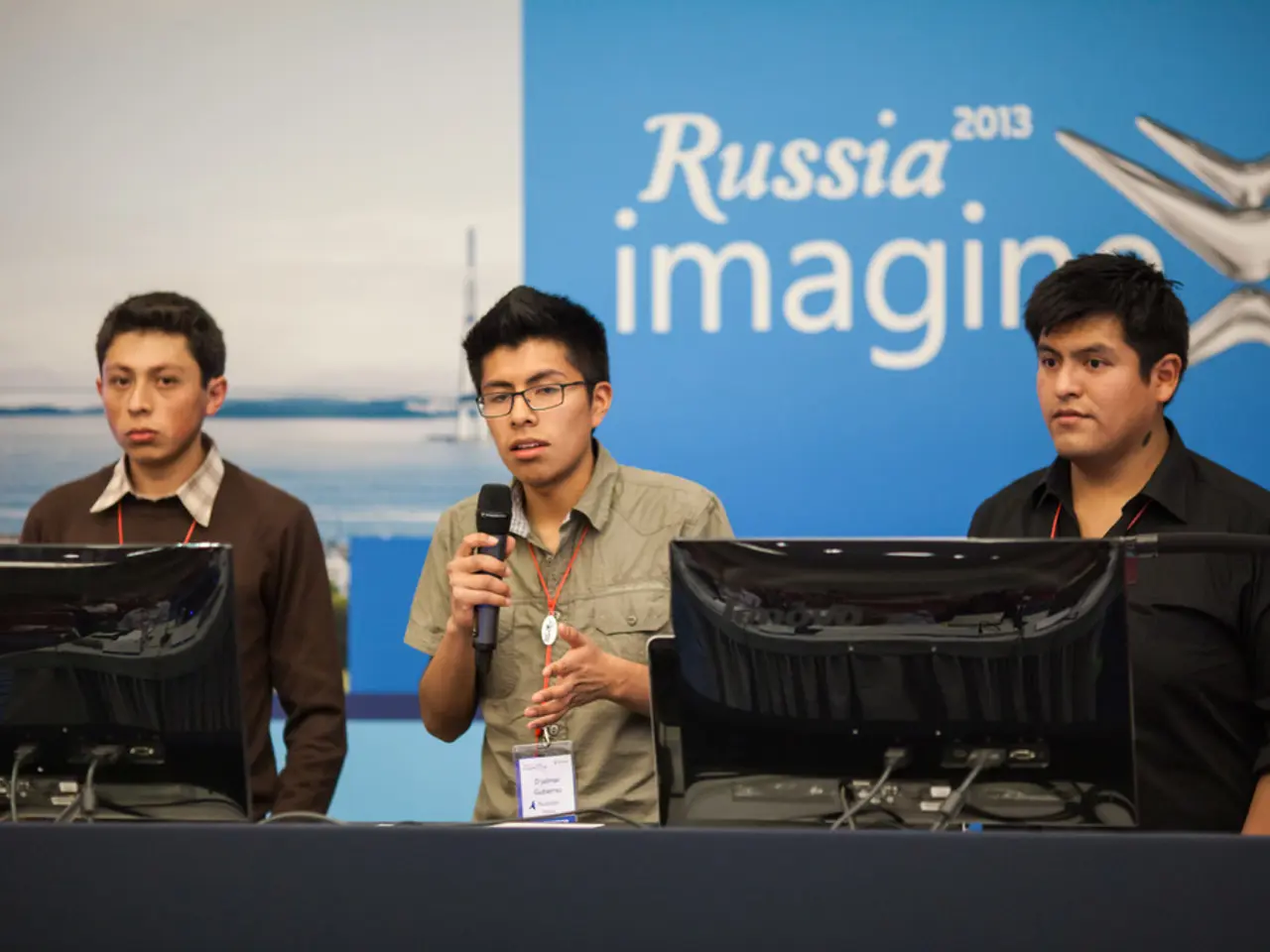Coalition leaders' joint trip to Kyiv
In a significant development, German coalition leaders Jens Spahn (CDU/CSU) and Matthias Miersch (SPD) embarked on their first joint visit to Ukraine, marking a fresh start for the Black-Red coalition after a rocky first 100 days.
The visit, which took them to Kyiv, included meetings with Ukrainian President Volodymyr Zelensky, air defense soldiers, parliamentarians, and civil society representatives. The leaders witnessed the consequences of recent Russian drone and missile attacks in the city, underscoring the importance of German support, especially in air defense.
Spahn and Miersch visited German soldiers in Rzeszów, Poland, who are protecting the airport there with two Patriot air defense systems. The airport, approximately 60 kilometers from the Ukrainian border, serves as a key hub for the supply of Western weapons to Ukraine.
Miersch, who had never been in a war zone before, emphasized the significance of German support, especially in air defense, after seeing the consequences of the attacks. He also referred to ongoing European discussions about further sanctions against Russia, stating, "In this regard, all options are on the table."
Spahn emphasized that the best security guarantee for Ukraine is a well-equipped Ukrainian army. He stated that there must be consequences for anyone who brutally invades their neighbor, wants to redraw borders, kills, rapes, etc., and that there needs to be a discussion about whether and how frozen assets can be used.
The parliament plays a crucial role in supporting Ukraine, including approving budget funds and having the final say on a ceasefire and the deployment of German soldiers. However, any debate about German troop deployment is premature, according to Miersch, although he did not rule out the possibility.
Zelensky thanked the leaders for Germany's support in air defense. Around 210 billion euros of Russian central bank funds are frozen in the EU, with most held by the Brussels-based financial institution Euroclear. The leaders indicated openness to including frozen Russian assets in new sanctions being considered by Europeans.
The visit comes amidst faltering negotiations between Putin and Ukrainian President Volodymyr Zelenskyy in the past two weeks since Trump's meeting with Putin, and a proposed summit has not materialized. Two cruise missiles hit a building in the city center of Kyiv, affecting nearby buildings including the representation of the European Union and the British cultural institute British Council.
This visit to Ukraine in this format by coalition leaders from the Bundestag is unprecedented, signifying a strong commitment from Germany to support Ukraine in its time of need.
Read also:
- Tobacco industry's suggested changes on a legislative modification are disregarded by health journalists
- Trump's Policies: Tariffs, AI, Surveillance, and Possible Martial Law
- Uncovering Political Ad Transparency: A Guide to Investigating opponent's Political Advertisements in the Digital Realm
- Elon Musk praises JD Vance's debate performance against Tim Walz








